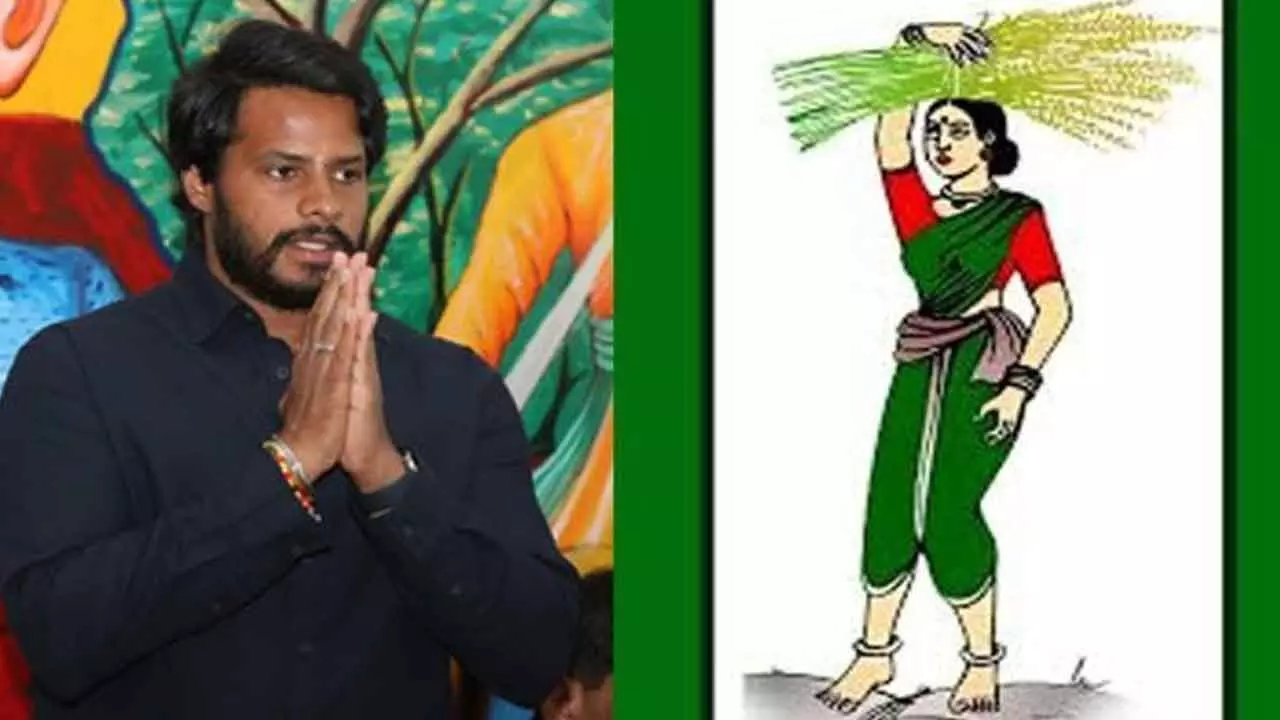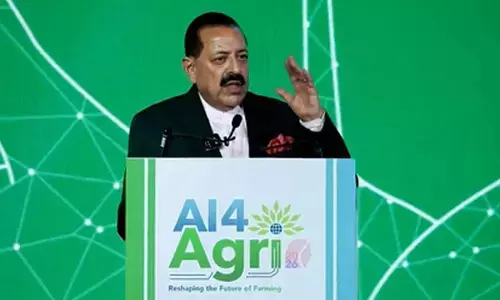Transition likely in Janata Dal (S) post-Sankranti

The potential elevation of Nikhil to state president is not without its challenges. Critics within and outside the party have raised concerns about dynastic politics, questioning whether Nikhil’s ascent signals a continuation of family-centric leadership
Bengaluru: As Karnataka approaches the post-Sankranti period, the Janata Dal Secular JD(S) is gearing up for a significant organisational shift. The party is actively mobilizing sup-port to elect a new state president and three working presidents, with discussions sur-rounding the leadership taking centre stage. Emerging reports suggest that Nikhil Kumaraswamy, the current head of the JDS youth wing, is poised to assume the role of state president, marking a notable elevation in his political journey.
The JD(S) has embarked on a campaign to rejuvenate its organizational structure, especially in light of recent electoral setbacks. In an effort to bolster grassroots sup-port, the party has already completed a membership registration drive. Following a brief hiatus due to the by-elections, the party is planning to reconvene in the second week of January 2025. This will provide a platform for consultations regarding organ-izational elections and overall party strategies.Nikhil Kumaraswamy’s promotion is being seen as a strategic move by the JD(S) leadership, particularly under the guidance of the party’s stalwart H.D. Deve Gowda.
The senior leader has expressed confidence in Nikhil’s capabilities to strengthen the party’s roots and revitalize its image despite the backdrop of recent electoral defeats. Nikhil has been tasked with touring the state to connect with party workers and sup-porters, reinforcing his role as a youthful leader with a vision for the future.The potential elevation of Nikhil to state president is not without its challenges. Critics within and outside the party have raised concerns about dynastic politics, questioning whether Nikhil’s ascent signals a continuation of family-centric leadership. In a bid to counter these allegations, the JD(S) is reportedly considering the addition of three working president positions to its leadership structure.
This move aims to distribute power and representation more equitably across different caste and community lines.To address the sensitive issue of caste representation, the JDS is contemplating a balanced approach in the selection process for these additional leadership roles. By creating three working president posts, the party intends to allocate these positions to individuals from Scheduled Castes (SCs), Scheduled Tribes (STs), Other Backward Classes (OBCs), and minority communities.
This strategic manoeuvre is aimed at re-storing faith among various voter blocs and reinforcing the party’s commitment to in-clusivity. Nikhil’s proposed presidency is viewed as a crucial step in re-establishing the JD(S)’s relevance in Karnataka’s political landscape. The JDS had faced significant challenges in both the general and by-elections, leading to a re- evaluation of leader-ship and strategy. Deve Gowda’s decision to promote Nikhil is rooted in the belief that the younger generation could connect more effectively with the electorate, particularly among youth and first-time voters.As the JDS prepares for these changes, it is also grappling with the political dynam-ics surrounding its position within the larger coalition framework in Karnataka.
Main-taining a strong identity amidst shifting alliances and competing parties remains a pivotal challenge. The upcoming organizational elections will be vital in setting the tone for the party’s future trajectory and its ability to reclaim voter confidence.The JDS stands at a crossroads as it seeks to rejuvenate its leadership and organiza-tional structure in the wake of recent electoral struggles.
With Nikhil Kumaraswamy likely to assume the role of state president, the party is simultaneously working to es-tablish a more representative leadership team that addresses concerns of dynastic politics and caste representation. The next steps the JDS takes in this transition will be crucial—beyond merely reshap-ing its internal structure, the party must effectively communicate its vision to the elec-torate and rebuild its grassroots connections.
As Karnataka moves into a new politi-cal phase, the efficacy of these strategies will determine the JDS’s capacity to navi-gate the complexities of state politics and retain its foothold in the hearts and minds of the people.








